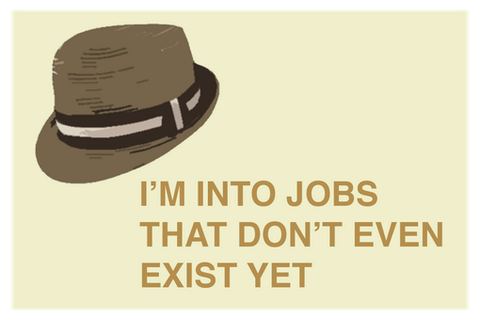
Six things new journalists need to know when trying to get a job
Programmers who are also journalists, social media editors, community managers – these are just some of jobs in journalism that didn’t exist five years ago. In the future, we can only expect a whole new set of jobs we haven’t yet imagined. At a SXSW panel, a few journalists who actually hire at news organizations sat down to talk about how students can prepare for the ever-evolving field. We have to emphasize the importance of grasping new ideas and quickly adapting them, Aron Pilhofer, editor, interactive news at The New York Times said. We also need to tell students to develop a “mindset for learning” rather than highlighting a specific tool, type of training or skill set, said Cindy Royal, associate professor, School of Journalism and Mass Communication at Texas State University. Whether you’re a student preparing to go out into the workforce, or a company thinking about hiring for jobs that are not well-defined yet, here are five things to keep in mind: 1. Lose the jack of all trades. Go deep with one tech skill A lot of students are coming out of universities prepared to do several things moderately well, Pilhofer said. “It’s both fortunate and unfortunate – it’s unfortunate because you aren’t seeing specialists… the ‘jack of all trades’ approach has a limiting factor built into it.”Instead of encouraging students to learn a little bit of everything, he advised that it is better to be extremely well versed and develop technical skills in one particular area, whether it’s audio, video, web design, etc. 2. Be passionate Pilhofer said that when he looks at a resume, he wants to see passion. He’ll evaluate a person’s entire portfolio, for example, whether they have contributed to open source projects, what kinds of projects they’ve built themselves, what’s on their blog. He wants to see the passion beyond the resume, “you can’t just be your GPA,” he said, there also has to be creativity attached. Royal advises her students to use social media to promote their work and help build more connections with people doing interesting work. And, sometimes that means working on your own time and exploring options that might eventually improve your skill set on nights and weekends. 3. Use academic opportunities to experiment Not everyone is lucky enough to know what they want to do at a young age. College gives you the ability to try out different things and find out what you are passionate about, which is so important, said Royal. 4. “Never underestimate the value of being able to construct a sentence.” It will never go out of style and it’s valuable, Pilhofer advised. 5. Learn to code. Does every journalist have to do it? “Yes. No. Maybe,” said Pilhofer. Developing coding skills is important. “Coding is a literary form if you get down to it,” he explained. “You’re telling stories with a narrative flow.” If you aren’t willing to learn to code, you at least have to understand the possibilities of what it can do. Often mid-career journalism professionals find it overwhelming or confusing to learn to code. Sometimes have difficulty “understanding the possibilities” of what it can do for them, or they lack a passion to do it. 6. Don’t be afraid to measure success (or failure) Journalists can sometimes be hesitant talk about or adopt metrics and/or analytics in relation to their work. In fact, metrics can come more naturally to marketing professionals. But it’s important to evaluate successes and failures even if culturally “it’s not what we do or what we think we do,” said Pilhofer. “I think there’s room on the team for folks who have that background- this is one of the things I think we’re currently lacking.” Newsrooms like The New York Times have hired non-traditional journalists in recent years including people who code, 3-d graphic artists or statisticians. “Who knows what will be valuable in the future,” said Pilhofer. “We just want to build the most diverse team as possible.” By Elizabeth R. Miller, communications associate at Knight Foundation Related: “In two years, DocumentCloud becomes standard” by Aron Pilhofer and “Four steps to learn the web through coding” by Jenna Buehler
Recent Content
-
Journalismarticle ·
-
Journalismarticle ·
-
Journalismarticle ·


